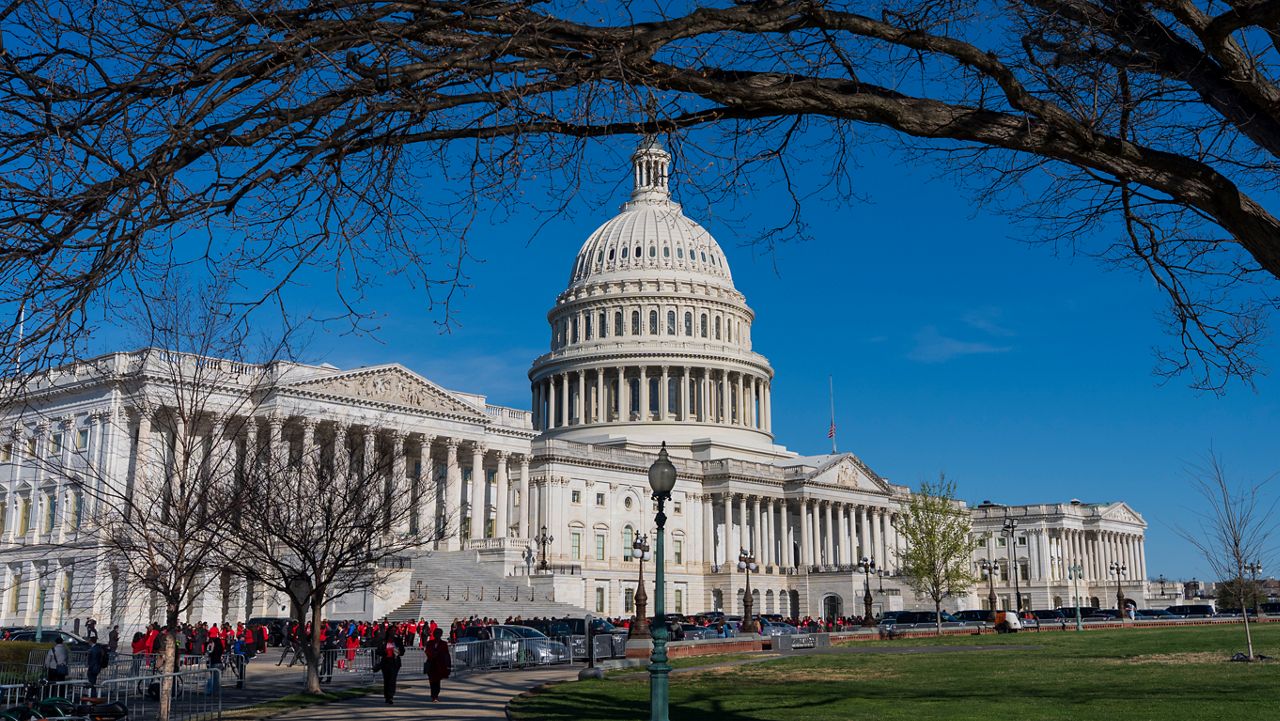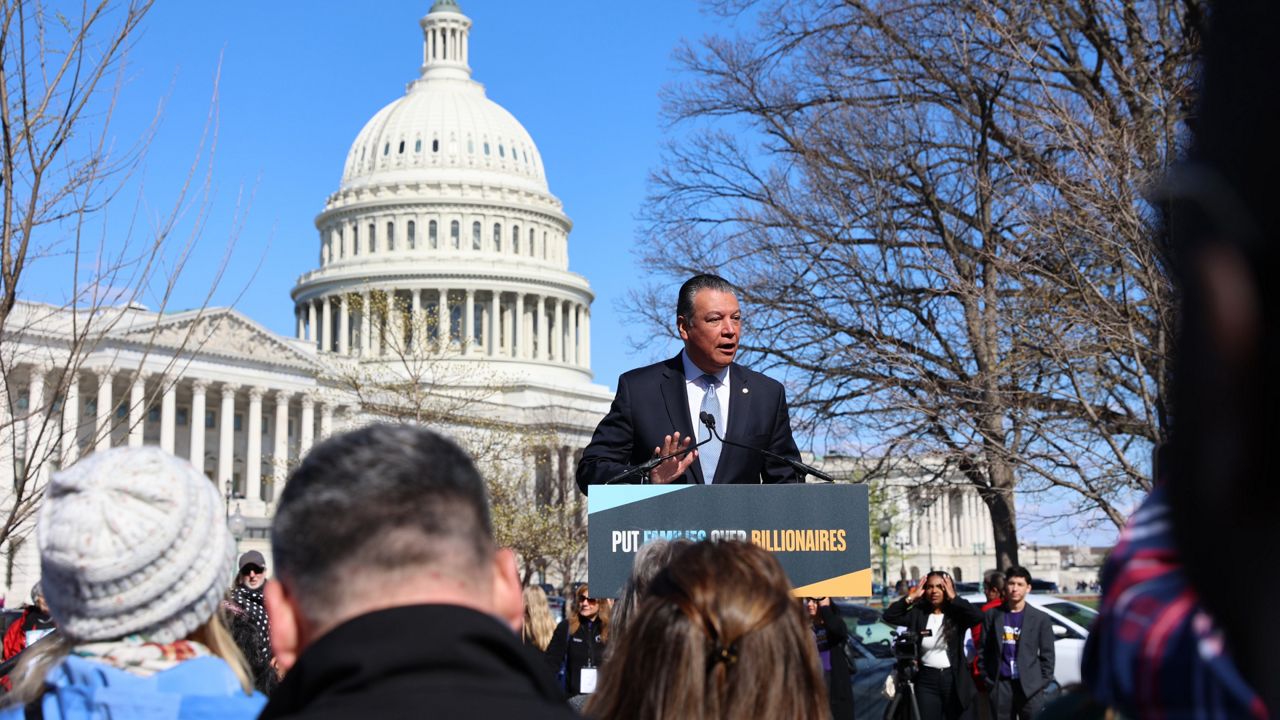In recent weeks, President Donald Trump has attacked several federal judges who have issued injunctions blocking his policies, and he’s called for the impeachment of one judge who blocked his administration from using a rarely invoked wartime powers law, the Alien Enemies Act, to deport Venezuelan migrants without due process.
Congress appears to have little appetite to impeach judges, as Trump has requested, but Republican leaders have zeroed in on an alternative.
“There’s a natural tension between the branches of government, and we’re working through that,” House Speaker Mike Johnson said. “The Judiciary Committee is looking at alternatives — one of the bills that I really like that’s already been through committee was authored by Rep. Darrell Issa.”
Issa’s bill, the No Rogue Rulings Act, would limit the power of federal judges to issue nationwide injunctions, such as the one Judge James Boasberg issued last month barring the Trump administration from using the Alien Enemies Act.
“The federal judiciary isn’t interpreting the law, it is impeding the presidency,” Issa said Tuesday during a judiciary subcommittee hearing.
Spectrum News reached out to Issa’s office several times for an interview about his legislation, but he was not made available.
This is just the latest attempt, albeit a more pointed approach, to curb the power of the judicial branch; bills have been previously introduced to bar attorneys from “judge shopping” — bringing cases in jurisdictions where judges are more likely to look favorably on their claims.. Republicans often found success in court during the Biden administration, for example, when they would take their cases to the U.S. District Court for the Northern District of Texas.
“This is the funniest thing in the world,” said Rep. Jamie Raskin, D-Md., when asked about Issa’s bill. “During the Biden administration, they were lined up around the block in Judge [Matthew] Kacsmaryk’s chambers in Texas. They were all on a trek down there because they were trying to get him to impose nationwide injunctions against mifepristone and different terms of birth control, and abortions and guns. They loved the nationwide injunction then.”
Sen. Josh Hawley, R-Mo., has also introduced a version of Issa’s legislation in the Senate. The Nationwide Injunction Abuse Prevent Act of 2025 would ban nationwide injunctions by district court judges, mandate that a district judge’s order only applies to the parties in the case or within the local judicial district, and empower the executive branch to pursue a national policy agenda without “unreasonable obstruction.”
“Right now, we have a situation where district court judges are trying to set policy for the entire nation, and I don't believe they have the authority to do that under Article III of the Constitution, period,” Hawley said in an interview with Spectrum News.
When asked about the risk of this law potentially backfiring and being used by Democrats to allow them the ability to institute an agenda with little check from the judicial branch, Hawley said “it would absolutely apply across the board.”
“That is a feature, not a bug. It would apply to all judges,” he said.
“The Constitution says district court judges don't get to set national policy. They just don't get to do that. So would it apply to Republican appointees, too? You bet it would. And would it apply to every single district court judge, whether they're conservative or liberal? You bet it would. I think that’s what we want.”
Legal analysts warn this may be a situation where Republicans should be careful what they wish for.
“Republicans might have regrets about trying to impose this limit on federal judges if they become the minority power, because at that point you have limited the ability of federal judges to then impose nationwide injunctions on the Democrats to impose their agenda,” said Jessica Levinson, a law professor at Loyola Law School.
"I think what we could end up with if we start to say to federal judges, 'you can't impose nationwide injunctions,' is really a patchwork of laws where certain behavior is illegal in some areas but not in others. And that's the type of legal chaos that we don't want to create," Levinson added.
Democrats have been quick to criticize the legislation, calling it “very bad policy.”
“I certainly don't believe we should be limiting the power of the courts to be a check on the executive branch, where we have a robust separation of powers and the lower courts play a big role in that,” said Rep. Ro Khanna, D-Calif.
“This is another attempt by folks aligned with the Trump administration to tear down those co-equal branches. I'm against it,” said Rep. George Whitesides, D-Calif.
Levinson said Democrats are right to have concerns about this move to limit the power of judges and that there likely should be concern writ large.
“At this moment when we see an administration embracing a very broad view of executive power, I think there should be concern about trying to reduce the power of the federal judiciary,” she said.
The bill, if passed, faces an uphill battle in the Senate, where it would need the support of at least seven Democrats to pass. When asked Tuesday if this bill was simply an opportunity to stave off members of his party seeking impeachment, Speaker Johnson told reporters that he thinks: “It's in both parties' interest to make sure that you don't have rogue judges making personal determinations or what happens with an administration.”
The bill is expected to get a vote in the coming weeks.











